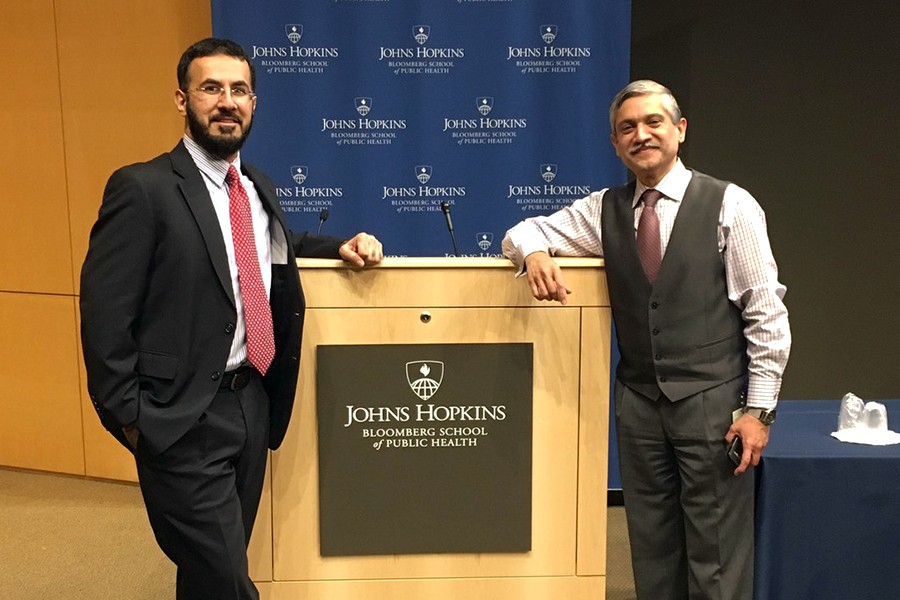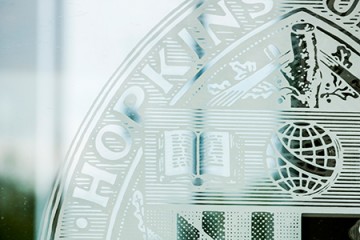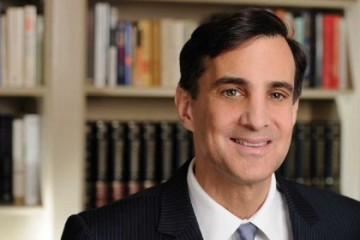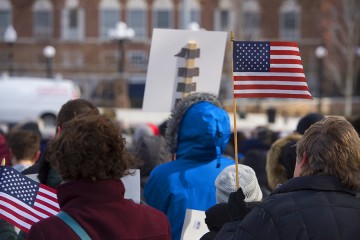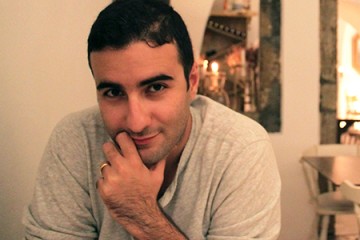Mansoor Shams, a Muslim American veteran of the U.S. Marine Corps, invited his audience Wednesday to call out whatever stereotypes came to mind just by looking at him.
When, inevitably, no one did, Shams supplied them himself: "The terrorist. The Bin Laden. The ISIS guy."
Shams, speaking at a Johns Hopkins seminar on American Muslims, challenged everyone to grapple directly with those kind of thoughts rather than flicking them away to the subconscious.
"The moment a negative thought creeps into your mind, and you ignore it," he said, "you have accepted that negative thought."
A tech entrepreneur and 2011 graduate of the Johns Hopkins MBA program, Shams served as a Marine from 2000 to 2004. Recently the native of Pakistan has adopted the mantle "The Muslim Marine," inviting a public dialogue about his faith and identity in order to confront Islamophobia.
He's visited sites across the country, wearing a sign that reads: "I'm Muslim and a U.S. Marine, Ask Me Anything." Several news outlets have picked up on his campaign, including PBS on his recent stop at Baltimore's Inner Harbor.
At JHU's Bloomberg School of Public Health, Shams was the special guest for "Understanding American Muslims," a seminar exploring the increasing complexities of that identity. The event marked the start of a schoolwide initiative aimed at addressing these issues.
"In having these uncomfortable dialogues, we help understand each other better," said Johns Hopkins Professor Adnan Hyder, a Muslim American himself and associate chair of the Bloomberg School's Department of International Health.
Hyder borrowed a quote from Amir Hussain's 2016 book, Muslims and the Makings of America, to start the discussion: "There has never been an America without Muslims," he said.
"Let that sink in," Hyder continued, "for those who think that Muslims are relative newcomers to this country."
Also see
Shams, in his talk, addressed some of the reductivist fears that drive Islamophobia.
"I don't deny the fact that there are people with malicious intent, with very twisted ideologies," he said. But "one single person, or one group like ISIS, will not speak for me or 1.6 billion Muslims around the world."
To the Muslims in the room, Shams said, don't hide your identity. "Don't shave your beard … don't take off your hijab. Don't give yourself a nickname so you can blend in."
Shams addressed President Donald Trump's executive order to bar entry to the U.S. by immigrants from seven Muslim-majority countries, saying he was struck recently by scenes of thousands of Americans joining in protest. "They don't even look like me," he said. "They don't have the same faith as me."
He shared a thought from his uncle, a non-military man who nonetheless saw the basis for patriotism in those displays on U.S. streets. His uncle told him, Shams said, "It's worth dying for a country like that."
In an interview, Hyder said Wednesday's event was the start of a wider effort in the Johns Hopkins Muslim community, encouraging contributions in research, education, and service.
The American Muslim Wellness Initiative, nicknamed "AmWell," was developed in meetings among Muslim students and faculty.
"There was a lot of anxiety," Hyder said, particularly after the president's travel ban. People were looking for ways to respond, like discussions and volunteering or writing op-eds.
The new initiative is meant to serve as a "location and a home" for such activities, Hyder said. Those interested in participating can email amwell@jhu.edu.
Posted in Voices+Opinion, Politics+Society
Tagged immigration, politics, islam, muslim identity




